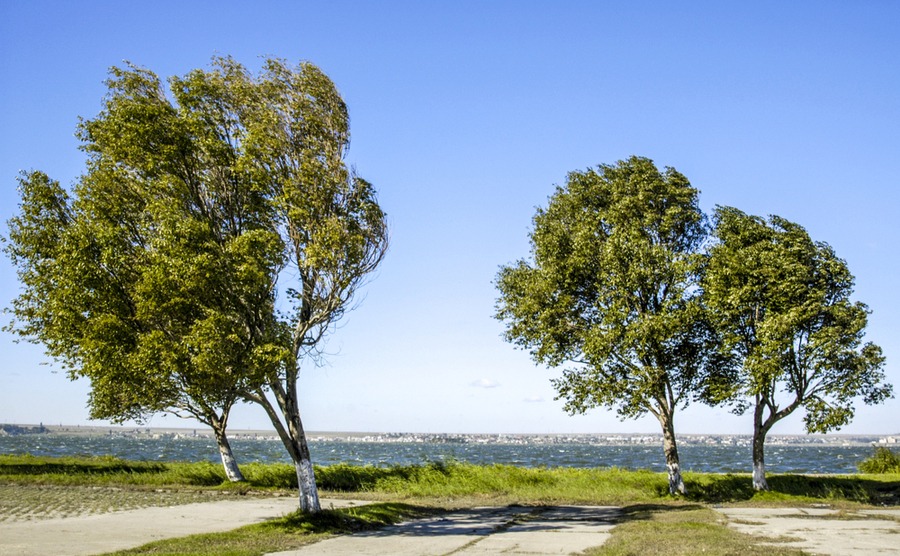Could you build your own home in Cyprus? If you’re going to make a fresh start in Cyprus, especially in retirement, or buy a holiday home, you may as well move into somewhere special! Many of us have spent a large part of our lives imagining the perfect home, where everything fits together exactly as we want it. So we’re starting a three-part series on self-building in Cyprus, written by someone who did it. In this week’s first part we’re looking into where to buy your building plot and what it will cost.
An advantage of coming to live in Cyprus is that you have the opportunity to build your own custom-made home. We built our family home in this way in Cyprus, and the great advantage is taking control. You can design it to your own specifications and control the costs of building it too. The first step is to find and then buy the plot of land.
Building your own home is a lengthy process that can leave you at the mercy of changing exchange rates. To avoid that, read the Property Buyer’s Guide to Currency.
Find homes in Cyprus via our property portal.
Finding the Land
Back in 2002 when we came, very few property developers here sold plots of land. Thinking back, I remember that property developers bought up huge chunks of land for financial gain. This still remains the case. To view plots of land you can either visit estate agents’ offices online or in the main towns. Alternatively, you can view land yourselves, like we did.
Since the 2013 financial crisis, individual private sales of land have increased a great deal.
Since the 2013 financial crisis, individual private sales of land have increased a great deal. This approach has the advantage that you can negotiate your own costs, and to a certain extent negate excessive property developer fees. Its main disadvantage is that you will need legal advice to ensure all is legally smooth (more on this in Part 2 of this series).

The perfect spot for your home?
In order to narrow things down, you first need to decide where you want to live. The options are in a main town or in a village, on the coast or in the mountain areas. Once you’ve decided the location, it is simply a matter of taking regular car trips around your chosen area. Look for a ‘For Sale’ (Πωλούνταi in Greek) sign on empty land. You can also ask in the local shops in the area for any possible plots of land for sale.
Tip: generally, in my experience, land plots handwritten For Sale signs indicate individual residential plots as opposed to commercial plots. You will also see the plot size (in square metres in Cyprus) on the sign. There is a telephone number (often a mobile phone number which is particularly handy!) on the sign, and you make the phone call to the seller as soon as you find a land that you like. The seller will meet you at the plot and provide you with more detail.
If you think that the plot you are viewing is the best plot for you, you need to make sure that the plot meets some essential criteria.
Land essentials
Your lawyer must check the following:
- A copy of the Title Deed for the land. This is evidence that the seller is the lawful owner of the land. It also gives details of the owner, the plot size, where it is, and confirms that the land is deposited in Cyprus’s Land Registry system. You should also ask for a copy of the Land’s Office Site Plan for the land.
- Details on the Title Deed must match those on the Site Plan.
- Boundaries and the shape of the plot on the Site Plan must confirm the physical boundaries, surrounding roads, and shape of the plot.
- Services like water and electricity are available.
- That the plot is residential, and not solely for commercial buildings.
- Ensure that you have right of way to access the land. This is not automatic, and it may need to be negotiated with surrounding land owners.
- Request a Land Survey to ensure that it is suitable for house building.
- Check out the town planning zones, like the height of the building allowed on the land, the area the building must take, and the number of floors permitted. Your house can only cover a specified amount of square metres within the total square metres area of the land.
You can can visit the government Land Registry Office and the Title Deeds Department yourselves, but from experience I would advise you to hire a private lawyer. Visiting these government departments is a very lengthy process. It is also crucial to use a private lawyer rather than one recommended by a property developer or real estate agent. As well being too cosy with developers, they can charge higher fees.
You can find a useful list of private lawyers from the British High Commission in Nicosia. Once you have established that these main criteria have been met, you can request your lawyer to proceed with a sale contract to purchase the land. You sign the contract as you would in the UK, with witnesses. This is then lodged with the Land Registry. The Title Deed Department issues a new Title Deed with your name as owner. The final step is to pay the seller for the land.
Haggling over property and land prices in a new and unfamiliar country can leave you feeling at a disadvantage. Stay in control; read our free guide, How to Negotiate Abroad.
Land Prices
To give an idea of prices, the following plots are all available right now (July 2019):
Limassol. A hillside plot of just over 6,500 square metres, within the town, three kilometres from the sea: €1,700,000.
Limassol. A 1,000 square metre plot in Pareklissia, a large village two kilometres from the sea: €165,000.
Paphos. A large plot of 9,000 square metres in Pegeia, a large village 3.7km from the sea: €1,900,000.
Larnaca. This 253 square metre plot town is within Larnaca, 1.3km from the sea. €450,000.
Larnaca. Just a short 400 metre walk from the sea in tbe village of Oroklini, this 1,400 metre plot is €650,000.
Troodos. In Platres, a large village in the mountainous area, this 2,000 square metre plot is €350,000.
You will find many other parcels of land in Cyprus at Rightmove, with plots even in Paphos at prices as low as €39,000. When you come to buy a plot, do bear in mind that local estate agents may do all they can to persuade you to hire certain property developers of their acquaintance! This could be costly.
So what next? In part two, we will be looking into finding an architect and getting planning permission.










